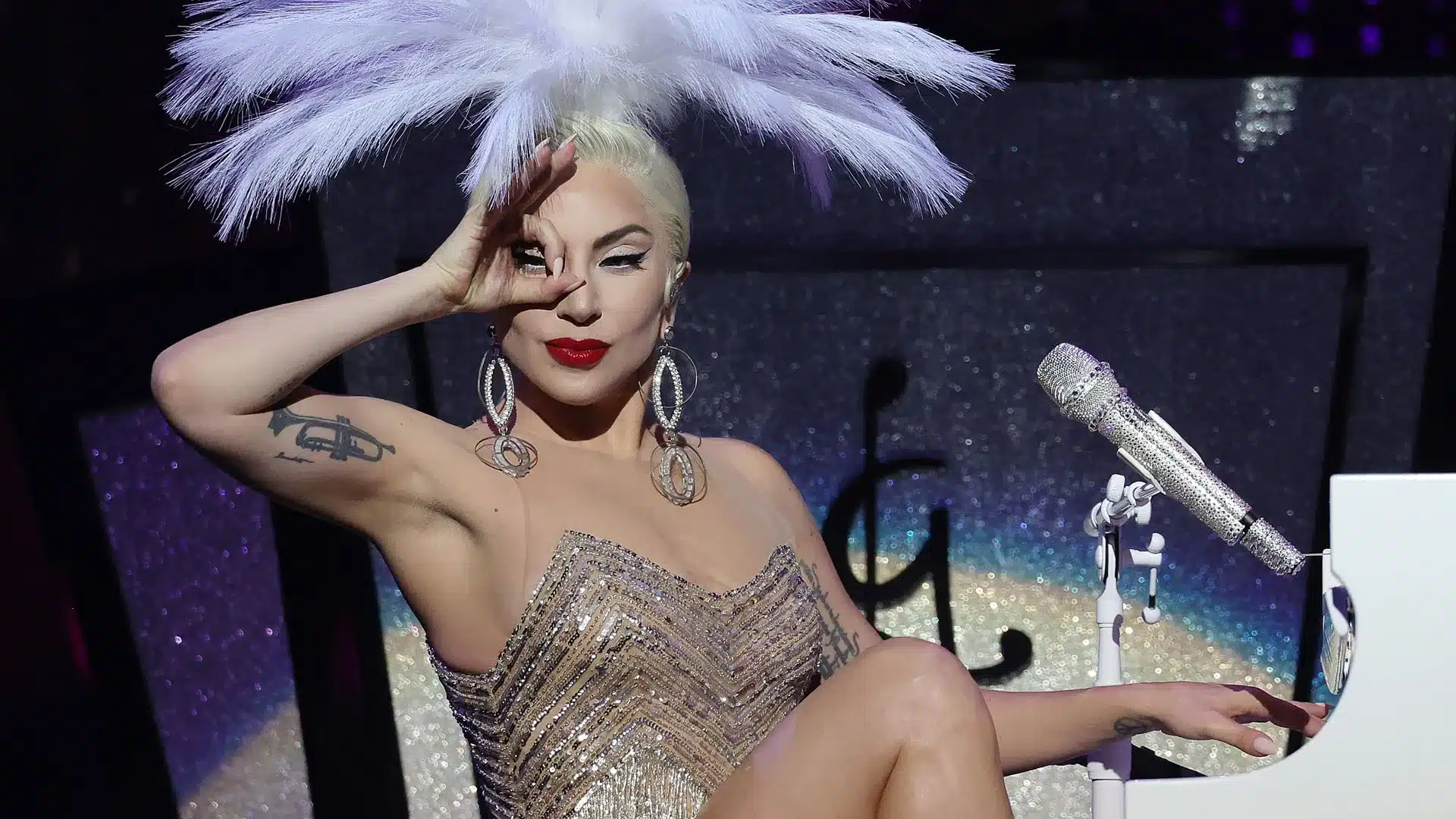Released: 2009
Features: Beyoncé
Gaga’s “Telephone,” featuring Queen Bey herself, is a vibrant pop anthem about claiming one’s space and setting boundaries. The song’s pumping beats and catchy hooks play on a metaphorical telephone call to challenge societal pressures and expectations, asserting the need for personal space and autonomy in modern relationships.
The song kicks off with Gaga’s exasperated “Hello, hello, baby”. This illustrates a sense of frustration, not only with the lack of cell service – a universal plight we can all relate to – but more poignantly, with the obstructive presence of someone who just can’t take a hint. Lady Gaga flips the basic utility of a phone on its head, making it an emblem of disruption and unwanted attention.
The chorus, “stop calling, stop calling”, is a repetitive and unequivocal demand for space and peace. Gaga and Beyoncé are calling out the people in their lives who constantly demand their attention and energy, without considering their current priorities. The lines “I got my head and my heart on the dance floor” symbolize their desire to enjoy the moment, hinting that sometimes a throbbing bass, an electric crowd, and our own euphoria are all the company we need.
Let’s dive into the section where they sing “can call all you want, but there’s no one home”. This metaphor denotes that both these powerhouses are emotionally unavailable for the time being. The proclamation of them “sipping that bubb” aka drinking champagne, cements the image of them savoring their self-reliance and independence, championing the act of simply enjoying oneself.
Beyoncé’s verse takes this autonomy even further. The line, “Boy, the way you blowing up my phone won’t make me leave no faster” highlights the futility of this relentless pursuit, rebuking the idea that hounding can win someone’s affection. She even equates the constant calls to a collector’s, suggesting an unwelcomed invasion of privacy and personal space. Asserting that she should have left her phone at home might sound like an offhand complaint, but it’s a significant revelation about our technology-saturated lives and the constant availability it demands of us.
When Gaga ends the song with “The number you have reached is not in service at this time,” it echoes the sentiment of disconnection, illustrating how both artists are choosing to tune out external disturbances. It’s their full-throttle embrace of individuality and freedom, an assertive refusal to be controlled or consumed by anybody.
At the end of the day, “Telephone” stands as more than just a dance club smash. It’s a high-octane manifesto of autonomy – a call to all listeners to stop, breathe, and dance without the looming worry of a constant connection, to fully embrace the joy of personal freedom.








